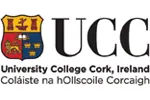

| The award | How you will study | Study duration | Course start | Domestic course fees | International course fees |
|---|---|---|---|---|---|
| HDip | Full-time, Part-time | 1 - 2 year | September | find out | 0 |
Overview
The Higher Diploma in Arts - History is intended for those who already have a degree and who wish to study history intensively over one academic year full-time, or two academic years part-time.
This qualification is a conversion course for students who would not normally have studied history to degree level previously and want to apply for an MA in History, or who want to add the Higher Diploma in Arts - History to their teaching qualifications. The HDip Arts - History is recognised by the Teaching Council of Ireland as a teaching subject. It is not a teaching qualification, but in the past, students have taken this course to augment their applications for Professinal Diploma in Education.
Registration with the Teaching Council:For applicants who are taking the Higher Diploma with a view to Teaching Council subject registration, the Higher Diploma in Arts History is recognised by the Teaching Council for the purposes of a teaching subject at post primary level.
IMPORTANT NOTE: Please note that the Higher Diploma in Arts programme is NOT the teacher training programme. Graduates must complete the Professional Master ofEducation to qualify as a secondary school teacher. Please see www.ucc.ie/en/pec01 for further details.
Course Details
The Higher Diploma in Arts shall consist of modules to the value of 60 credits taken from a range of existing Second and Final Arts modules in the relevant subject. Suitable modules as well as attendance requirements and coursework are determined with the department.
Students of the HDip in Arts History have an opportunity to experience a broad range of courses, from large core classes to small individual case study groups and seminars. You have an opportunity to specialise in whatever field you wish: from Irish history, international relations, early modern history, medieval studies and early Irish history.
Students of this Higher Diploma may select any2nd and 3rd year modules from the undergraduate History offering: http://www.ucc.ie/modules/descriptions/page036.html
For further information on these individual modules, see the course descriptions at the School of History undergraduate website: http://www.ucc.ie/en/history/Undergraduate/
Module selection is driven by student choice. In general, if you wish to qualify as a teacher, you are advised to refer to the school curriculum and match the modules to that broad field. If you wish to pursue a master's degree, you are advised to cluster a number of your modules around your future field of study (e.g. modern Ireland, medieval, international relations, etc).
On completion of the Higher Diploma in History, you will have gained a broad understanding of history through thematic examination of general and specific fields, and developed the analytical and writing skills of the historian.
Registration with the Teaching Council: Many subjects have discipline-specific requirements and you are advised to check the requirements for the subject area by consulting the following:
Fact File
Course Code: CKA17 Full-time; CKA29 Part-time
Course Title: History
College: Arts, Celtic Studies and Social Sciences
Duration: 1 year Full-time; 2 years Part-time
Teaching Mode: Full-time, Part-Time
The part-time option will be taught during weekday working hours over 2 years.
Qualifications: HDip in Arts
NFQ Level: Level 8
Costs: 2017/2018 Irish/EU EUR 6,000 full-time; EUR 3,000 per year part-time
2016 Entry Requirements: It is intended for those who already have a degree, preferably in the area of Arts or the Sciences (see detailed entry requirements)
Closing Date: See details in application procedure section below
Next Intake: 11 September 2017
Course Practicalities
Students take 60 credits from any combination of years 2 and 3 History undergraduate offerings. You are advised to consult the timetable and balance the load between the autumn and spring teaching periods. Part-time students over two years may balance the yearly credits in any combination they desire.
Assessment
Modules are examined by a combination of coursework assessment, in-class examinations and end-of-year examinations. Autumn modules are generally examined by coursework (in-class examination, 1,500-word essay or presentation, depending on modules chosen) weighted at 20%, and a 3,000- or 4,000-word essay (depending on modules chosen), weighted at 80%. Spring modules are examined by coursework (1,500-word essay or in-class test) weighted at 20% and end-of-year examination, weighted at 80%. Seminars (HI3200) and Supervised Projects (HI2104) have separate examination requirements as outlined in module descriptions.
Application Procedure
Application for this programme is on-line atwww.pac.ie/ucc. Places on this programme are offered in rounds. The closing dates for each round can be found here. For full details of the application procedure click How to apply.
Please note you will be required to answer specific additional supplementary questions as part of the online applications process for this programme. A copy of these supplementary questions are available to view here: CKA17AdditionalQuestions (50kB)2016 Entry Requirements: It is intended for those who already have a degree, preferably in the area of Arts or the Sciences (see detailed entry requirements)
Closing Date: See details in application procedure section below
Next Intake: 11 September 2017
Contact University College Cork (UCC) to find course entry requirements.
Below are some suggested courses at other providers that you may also be interested in:
Psychology of the Digital Media Master Degree
Erasmus School of Social and Behavioural Sciences (ESSB), Erasmus University Rotterdam
Find out moreBachelor of Communication / Bachelor of Creative Industries Bachelor Degree
Western Sydney University
Find out moreCareer and Technology Studies: Trades, Manufacturing, and Transportation BEd
University of Alberta
Find out moreIf you do not meet the entry requirements for this course then consider one of these postgraduate preparation courses from another institution:
Graduate Diploma of Engineering (Civil: Structural)
Engineering Institute of Technology
Find out moreThere are 338 other courses listed from University College Cork (UCC). A selection of these are displayed below:
Find out more about studying in Ireland